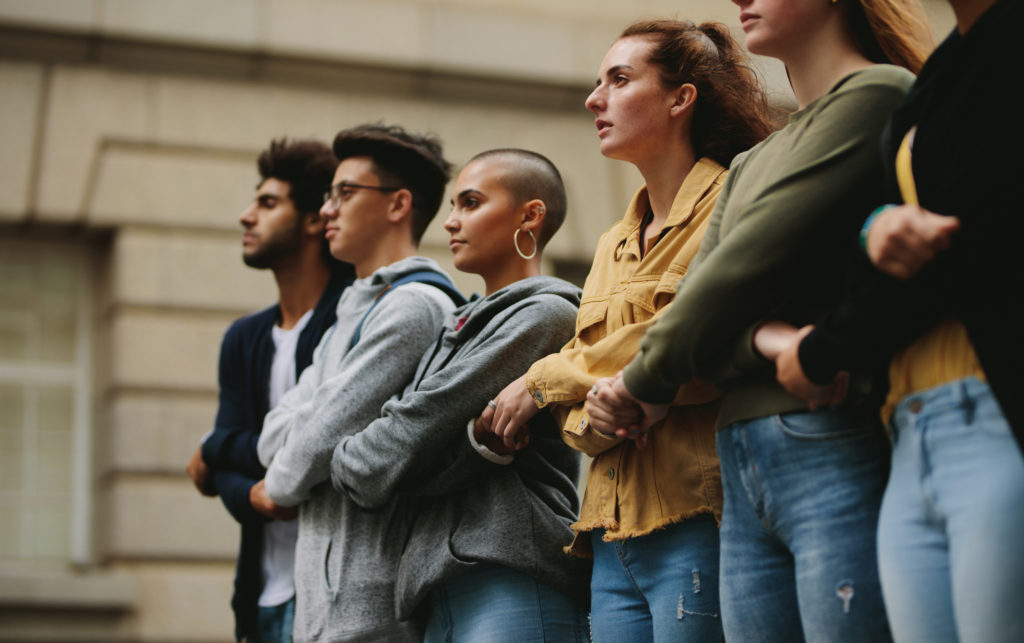
Similar to a student’s right to hold a protest, students also have the right to express their dissent in a counter-protest or demonstration. When these occasions arise, the expression of all parties is important. Campus Activities or a Student Life Free Expression Team representative may designate a separate location for those persons with views that differ from the views held by the event organizers. The Department of Public Safety may have one or more officers in attendance for safety purposes. Students should reserve a space with Trojan Event Services (TES) prior to their demonstration.
All people participating in protests and demonstrations are expected to provide a form of University issued or government issued identification upon request from a University official.
Remember that the university does not tolerate coercive disruption – the physical interference with others’ peaceful exercise of free speech – or conduct that physically endangers the safety of bystanders.
Students are also encouraged to meet with a Student Life staff member in Campus Activities to offer you guidance in coordination and planning for your counterprotest and to address issues of safety, goals, and potential concerns. Check out this helpful guide that covers the basics of planning an on-campus demonstration.